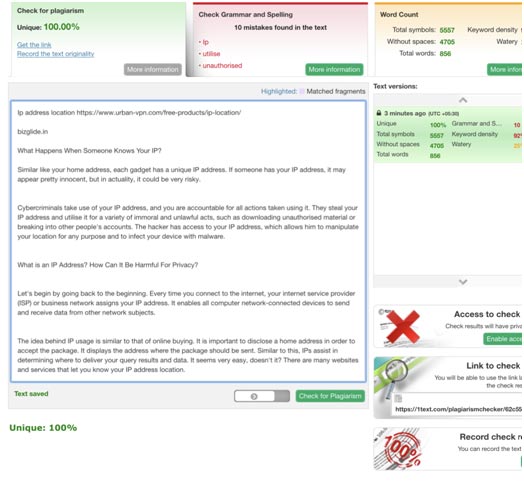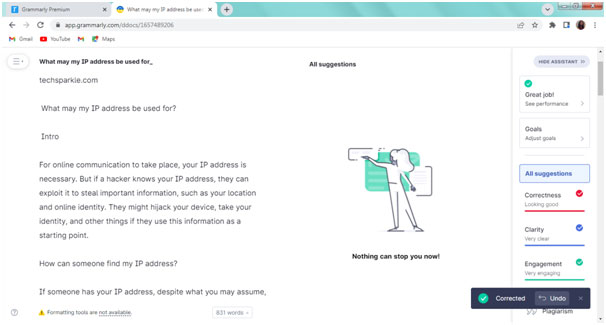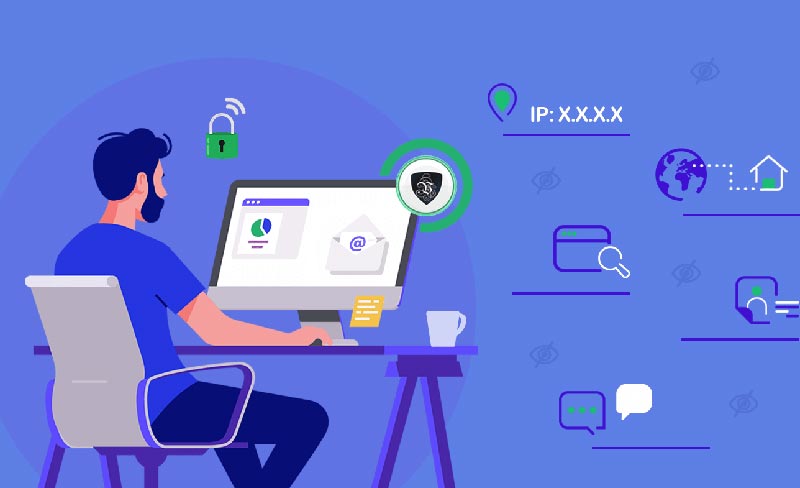Similar to your home address, each gadget has a unique IP address. If someone has your IP address, it may appear pretty innocent, but actually, it could be very risky.
Cybercriminals make use of your IP address, and you are accountable for all actions taken using it. They steal your IP address and utilize it for immoral and unlawful acts, such as downloading unauthorized material or breaking into other people's accounts. The hacker has access to your IP address, which allows him to manipulate your location for any purpose and to infect your device with malware.
You Can Also Read: What Is Uptime?
What is an IP Address? How Can It Be Harmful To Privacy?

Let's begin by going back to the beginning. Whenever you connect to the internet, your internet service provider (ISP) or business network assigns your IP address. It enables all computer network-connected devices to send and receive data from other network subjects.
The idea behind IP usage is similar to that of online buying. It is important to disclose a home address to accept the package. It displays the address where the package should be sent. Similar to this, IPs assist in determining where to deliver your query results and data. It seems very easy, doesn't it? Many websites and services let you know your IP address location.
Your ISP, the government, your browser, social media, the websites you visit, and all other online tools and advertisements always keep an eye on everything you do online. Many use this information in conjunction with your IP address to locate you. All of this information is kept on servers located all over the world, building a digital history of your online behavior.
By knowing your IP address, no one can directly learn anything about your online actions, but they can legally monitor you through certain channels. Cybercriminals can access the systems of businesses that have previously stored your data and take your information. There is always a danger of this happening because businesses get hacked daily.
Your IP address cannot be used by a hacker to determine who you are. They can use it to learn more about you and discover where you reside. For instance, since your IP address and ISP are connected, fraudsters can access your data through network assaults or scams. Swatting came about as a result of a particularly wicked person sending your IP address and a bogus threat to the authorities.
How can I protect my IP address?

It's time to discover how to conceal your IP address from the public now that you are aware of how IP addresses can ruin your fun. Any user who values their privacy will find a leaked IP address to be inconvenient, but the good news is that there are many methods you can employ to conceal it. The following list includes a few of the most popular methods for IP address concealment.
1. Use a VPN
Similar to a proxy server, a virtual private network, or VPN, acts as a go-between for your device and the destination web server. The IP of the VPN server you're connected to once more masks your IP address. Prior to leaving your computer, every good VPN will also encrypt your traffic. Even if someone does discover your true IP address, it won't be much use to them because the websites you visited and the actions you took there are concealed in a long string of meaningless numbers and characters.
Even better, once activated, VPN services will mask all of your device's network activity, not simply browsing activity. Therefore, your IP address is masked, and the data sent is encrypted whether you're playing games, downloading torrents, or using an email or photo app. If you are a business owner, you can use this technology to improve your business security.
2. Use a Proxy
When needed, a proxy server sits between you and your online destination and passes data back and forth. By using a proxy, you reroute your traffic through a different computer before arriving at the website you're looking for.
As a result, the proxy will replace your IP address with its own, hiding your presence from those problematic website server records. The only location that will be revealed if the logged IP address is cross-referenced with a geolocation database is the proxy server's location, which may be on the opposite side of the globe from your device.
Conclusion
Your computer is identified by its IP address when communicating over the Internet Protocol. Since your ISP may see the websites you visit, the videos you watch, and even who you communicate with, it is possible for third-party websites to determine your location to see your IP address. To locate and contact other users on a computer network, we require their IP addresses.
However, not everyone needs to know our actual IP address. By hiding your IP address, you keep your online identity safe and guarantee that you may access the internet without restriction. Downloading a VPN is crucial because of this. Without one, your online identity and privacy are in danger.
